In Regards to Reading
We study literature because God Himself communicates in word and through the Word. God communicates His Truth in story (narrative and drama) and in song (poetry). Literature reflects man’s experience and, inevitably, his world view; therefore, we teach our students to understand, evaluate, appreciate, and discern such various reflections in light of God’s Truth. Studying and evaluating various works across time periods, genres, cultures, and viewpoints enables our students to respond biblically to different world views when they encounter them.
In Regards to Writing
God, as Creator of all ideas, enables us to be innovative in literary genres; therefore, we encourage creative oral and written expression in our students. We also educate students to develop reasoned, logical, and persuasive polished writing that is clear, orderly, and effective.
English 6
This course includes the study of the five types of literature: The short story, the novel, drama, poetry, and non-fiction. Sixth grade English Language Arts covers several areas of reading, writing, grammar, speaking, listening, and researching. Students will have opportunities to read two novels as a class, four independent readings of their choice, several short stories, drama, and poetry. Using reading comprehensions skills and the story elements as a backdrop, all reading includes a Response to Literature, via written assignments, book reports, or class discussions. To strengthen student writing skills, several elements of writing are taught with the emphasis on vocabulary, grammar, word usage, and proper communication. A research project and presentation will help students develop their research skills and their oral communication skills.
English 7
This course includes the study of the five types of literature: The short story, the novel, drama, poetry, and non-fiction. The writing skills component in seventh grade English is a review of paragraphs, outlining, letter and journal writing. The students also have opportunities to strengthen their writing skills through various creative writing pieces, as well as a short research paper. The vocabulary program is literature-based and also involves spelling, word usage, and pronunciation proficiencies. Oral skills developed through class discussion and grammar skills are promoted in grammar workbook reviews.
English 8
This course includes the study of the five types of literature: the short story, the novel, drama, poetry, and non-fiction. Basic writing skills are reviewed but also supplemented with an introduction to the four basic kinds of writing as well as a formal introduction to the writing process. The vocabulary program is literature-based and also involves spelling, word usage, and pronunciation proficiencies. Oral skills are threaded throughout the development of the other skills, but formal poetry recitation is added. Grammar skills are promoted by review exercises and are modeled in the study of our literature readings.
English 9
This course includes the study of the five types of literature: the short story, the novel, drama, poetry, and non-fiction (short nonfiction unit, time permitting). The writing skills in ninth-grade English review the work of the previous two years but is supplemented by the formal introduction to the research paper, which is connected to a literature unit. The vocabulary program is literature-based and also involves spelling, word usage, and pronunciation proficiencies. Oral skills are threaded throughout the other skills but also highlighted with lengthier poetry memorization and a group presentation. Grammar skills are promoted by review exercises and are modeled in the study of our literature readings.
English 10
This is a World literature course arranged in thematic units. Within these units, all literary genres are investigated. The literary units focus on background, context, as well as all major literary components. Writing skills focus on comparison/contrast essays, persuasive essays, literary and personal essays, creative writing and a biographical research paper. Grammar, mechanics, and vocabulary are taught within the context of literature units. Oral skills emphasize participation in informal class discussion, individual and group presentations and dramatic performance.
English 11
This is an American literature course chronologically arranged in thematic units. Within these units, all literary genres and major literary elements are studied in the context of the time period and the worldviews that dominated the times. Consistent focus is placed on how the time’s and author’s worldview compares with a biblical worldview. Writing skills include formal literary analysis, as well as a term paper, which includes critical analysis. Grammatical, mechanical, spelling and vocabulary skills are taught and reinforced within the context of literary units. Oral skills emphasize responsible participation in class discussion and group work.
English 12
This course is based on British literature, spanning from Anglo-Saxon Era to the twentieth century. Special emphasis is placed on the reading, memorization, and analysis of British poetry, culminating in a major poetry paper that requires students to walk through the various steps of the writing process. The course also includes the in-depth study of one major British novel and play. Literary and writing skills are combined in the critical essay and various forms. Oral skills are encouraged in discussion, recitations, and group presentations.
Advanced English 12
Advanced English 12 is comprised of two dual credit courses through OCC’s College Credit Now program: Composition & Literature I (ENG 103), Composition & Literature II (ENG 104)
- Composition & Literature I (ENG 103): Emphasizing the recursive nature of writing and the process of revision, this course teaches students the skills and processes necessary for writing and revising college-level academic prose. Various aspects of writing, including invention/pre-writing, composing, revision, and editing/proofreading will be taught. Critical readings of various non-fiction texts may be used to develop an understanding of rhetorical conventions and genres. Composing in and for electronic environments, as well as their conventions, will also be taught.
- Composition & Literature II (ENG 104): Teaches students to comprehend, respond to and use the ideas of others in their own writing. Skills such as analytic and critical reading and writing, summarizing, and paraphrasing are developed through the study of literature. Term paper form will also be taught. Prerequisite: ENG 103.
